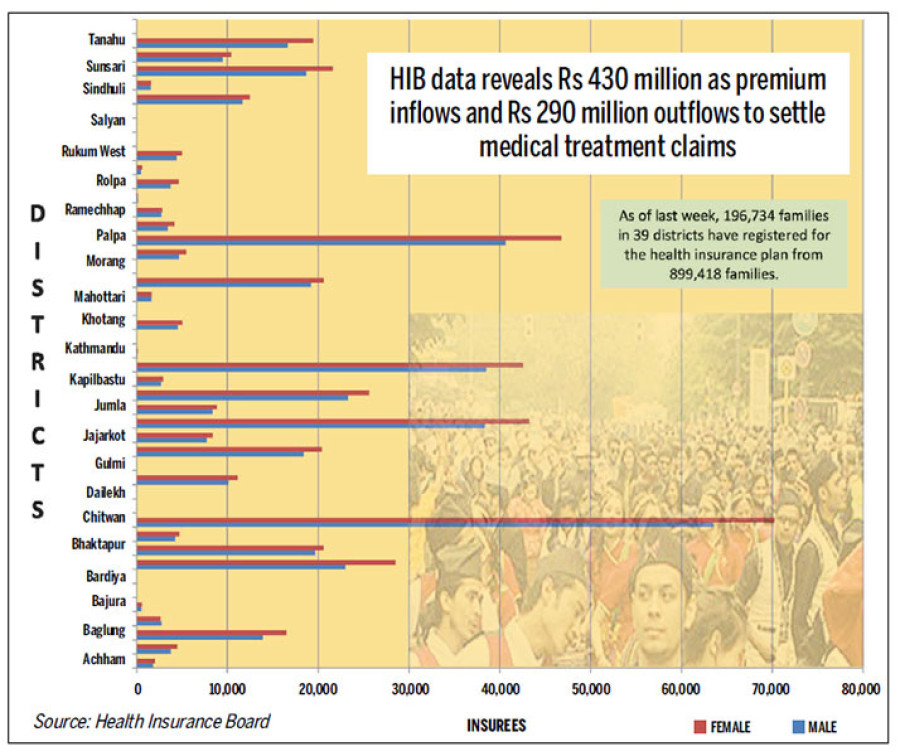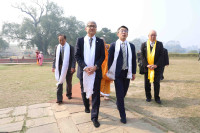National
Health insurance plan yet to cover 38 districts in Nepal
The public health insurance plan, started by the central government in 2016-17 fiscal, is yet to cover 38 of the 77 districts, Health Insurance Board (HIB) data shows.
The public health insurance plan, started by the central government in 2016-17 fiscal, is yet to cover 38 of the 77 districts, Health Insurance Board (HIB) data shows.
As of last week, 196,734 families in 39 districts have registered for the health insurance plan from 899,418 families.
The government first launched the public health insurance plan in 2016-17 from Kailali, Baglung and Ilam districts.
HIB data reveals Rs 430 million as premium inflows and Rs 290 million outflows to settle treatment claims.
Citizens have shown little interest in health insurance policies. The government plans to include more people under health insurance cover by enforcing the policy strictly on the government staff, already mandatory for public servants and migrant workers.
Department of Health Services Director General Dr. Guna Raj Lohani said, “As of now, the insurance plan is voluntary. Entry of government staff including civil servants, teachers, army and police personnel would encourage more people to enroll.”
Under this plan, a family of up to five members must pay a premium of Rs 2,500 annually to avail health services up to Rs 50,000. A family comprising more than five members, must pay Rs 425 for each additional member. This would qualify them for an additional insurance cover of Rs 10,000.
The limited amount of health cover discourages people register for this plan, health experts say. The amount provided under the plan would not suffice to treat one member of the family in some cases, insurance experts argue. Addressing these concerns, Dr. Lohani said planners have discussed increasing insurance coverage to Rs 100,000 from the current Rs 50,000 per family.
Health experts also stress on improvement of local hospitals for effectiveness of the policy. As per the policy, insurance policy holders can avail health services at primary health centres and district hospitals.
Substandard health services at local hospitals compel beneficiaries to travel to cities where the government has empanelled some hospitals.
Health Insurance Board Executive Director Dr. Madan Kumar Upadhyaya said, “Universal coverage of health insurance means reducing medical costs for people drastically. However, as long as public hospitals are not good enough in providing services, people will not have the motivation to choose health policies.”
The private hospitals can provide these services after Health Ministry permits, under the same charges fixed by the government.
Dr. Ramesh Koirala, a heart surgeon and an adviser to former Health Minister Gagan Thapa said proper monitoring of private sector, and providing treatment under the scheme, would be crucial in ensuring quality health services for people.
The government aims to expand its health insurance plan in all 77 districts. Finance Minister Yubaraj Khatiwada has allocated funds to this end.
Khatiwada has said the government will make health services easily accessible and reliable for citizens.




 15.12°C Kathmandu
15.12°C Kathmandu














